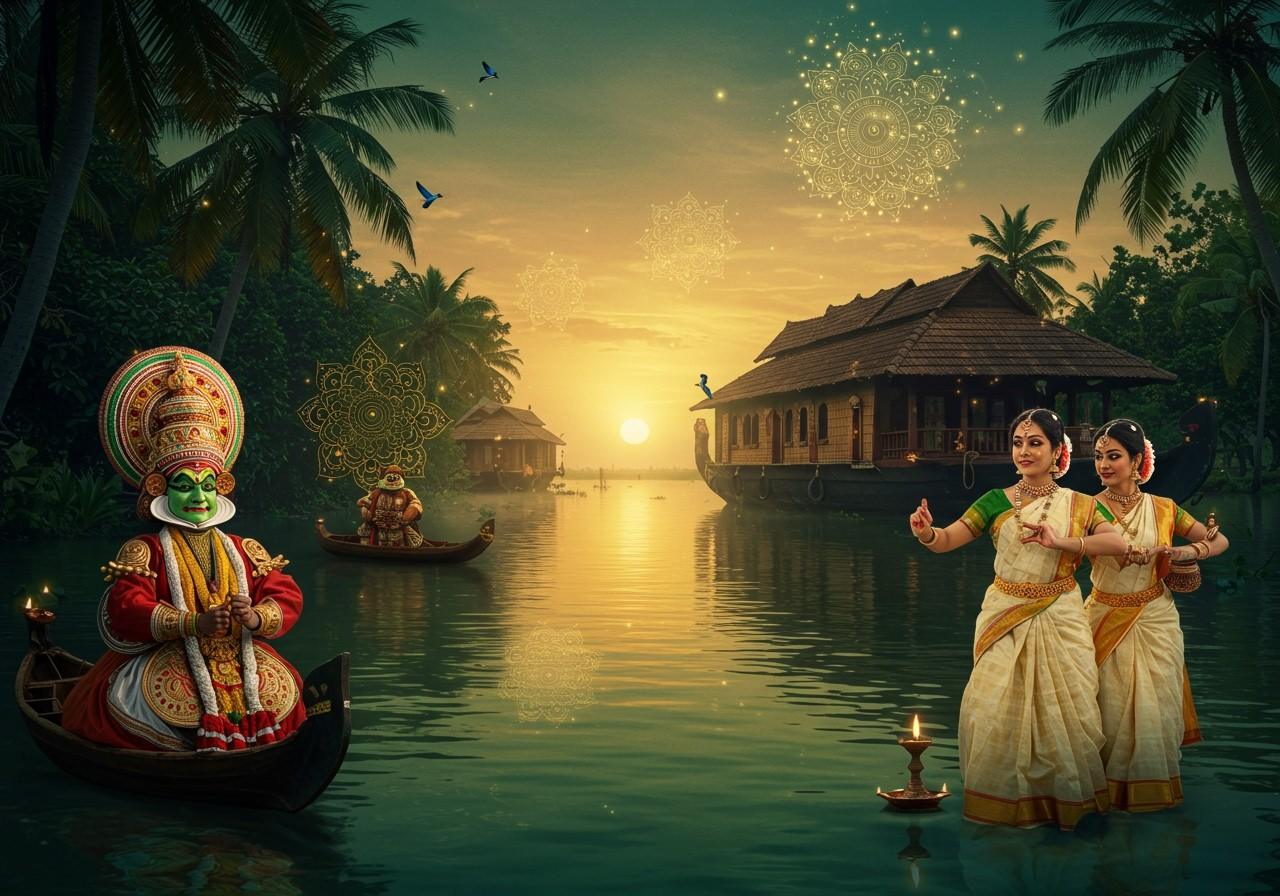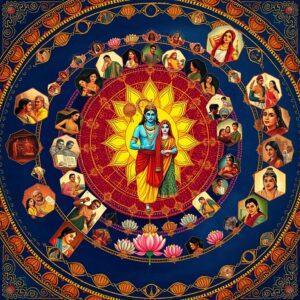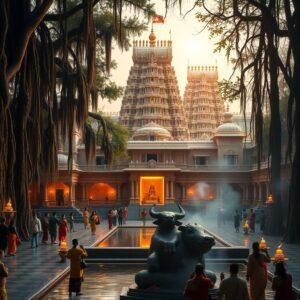
Kerala, often called “God’s Own Country,” is celebrated for its distinctive culture and traditions. This blog delves into the various facets that make Kerala’s culture and people so unique. From traditional attire to greeting customs, and the arts that define the state, we’ll discover how Kerala has preserved its rich heritage while embracing modernity. Kerala, known as “God’s Own Country,” has a rich and diverse culture that combines various traditions, arts, and practices. Key elements include classical performing arts like koodiyattom and kathakali, agriculture heritage, a booming tourism industry, distinctive architecture, and a strong emphasis on music such as Carnatic classical and Sopana Sangeetham. Kerala’s traditions also feature a blend of indigenous customs and ancient practices, with Ayurveda playing a significant role in daily life.
Understanding the Term ‘Mallu’
The term ‘Mallu‘ is colloquially used to refer to people from Kerala. It’s derived from ‘Malayali,’ denoting speakers of the Malayalam language. Malayalis are known for their high literacy rates, progressive outlook, and contributions to various fields, including literature, cinema, and politics. Being called a ‘Mallu’ evokes pride but can sometimes perpetuate stereotypes.
Traditional Greetings in Kerala
Kerala’s greeting customs are unique. The traditional ‘Namaste,’ involving a bow with folded hands, signifies respect. ‘Namaskaram,’ a Malayalam phrase, is also common, often accompanied by respectful gestures. Hospitality is paramount; guests are treated with utmost respect and offered traditional refreshments. Touching elders’ feet for blessings reflects deep respect for age and wisdom.
Traditional Attire of Kerala
Kerala’s traditional attire is distinctive. Men wear the ‘Mundu,’ a garment draped around the waist, with variations like the ‘Lungi‘ and ‘Kaili.’ Women typically wear the ‘Sari,’ including the ‘Settu Mundu,’ a two-piece sari worn during festivals. Gold jewelry is significant, especially during celebrations and weddings. Modern clothing is prevalent, but traditional garments remain important for cultural events. For those seeking authentic Kerala attire, consider exploring options available on Poojn.in.
Kerala’s Rich Artistic Heritage
Kerala is a treasure trove of traditional arts. Classical dance forms like Kathakali, with elaborate costumes and expressive gestures, and Mohiniyattam, known for graceful movements, are prominent. Traditional music includes Carnatic music and the percussion-driven Chenda Melam. Kalaripayattu, an ancient martial art, is integral to Kerala’s heritage. Mural paintings and coir products showcase the state’s artisanal skills.
Festivals and Rituals of Kerala
Kerala’s festivals reflect its cultural diversity. Onam, the harvest festival, features feasts, boat races, and dances. Vishu, the Malayali New Year, includes rituals like Vishukkani and Vishu Sadya. Thrissur Pooram and Theyyam blend religious fervor and cultural splendor. Temples and churches play vital roles in community life.
The Culinary Delights of Kerala
Kerala’s cuisine is as vibrant as its culture, centered around rice, coconut, and spices. The Sadya, a traditional vegetarian feast served on banana leaves during festivals, is a must-try. Dishes like Avial, Kaalan, and Payasam are culinary highlights. Seafood lovers will relish Karimeen Pollichathu. Kerala curries are often rich with coconut milk and tamarind. Syrian Christian and Muslim communities contribute to the culinary diversity with dishes like Appam with stew and Malabar biryani. You can find authentic spices and ingredients for these dishes on Poojn.in.
Lifestyle and Modern Influences
Kerala seamlessly blends tradition with modernity. The state has a high literacy rate and progressive social indicators. Women’s empowerment and healthcare are prioritized. This balance is evident in daily life, where technology and tradition coexist. Kerala’s diaspora helps preserve cultural ties while adapting to global lifestyles. Online shopping facilitates access to traditional products and rituals. Despite embracing modernity, Malayalis cherish their heritage, reflected in their everyday practices.
Poojn.in: Supporting Kerala’s Traditional Needs
Poojn.in offers a wide selection of products that cater to Kerala’s cultural practices and traditional requirements. From authentic cotton and silk dhotis to items for religious ceremonies, Poojn.in simplifies access to traditional goods for the modern Kerala household. You can find pure cotton dhotis, kasavu border dhotis, traditional Kerala mundus, and more, ensuring convenience without compromising quality or authenticity. This makes it easier for individuals to participate in cultural and religious observances while maintaining traditional dress codes.
- Pure Cotton Dhotis: Ideal for Kerala’s climate and religious ceremonies, available in various styles including the traditional Kerala mundu for daily wear and special occasions. Poojn.in ensures quality and authenticity, making traditional shopping convenient.
- Kasavu Border Dhotis: Specifically designed for traditional ceremonies and rituals, meeting the requirements of temple visits and religious functions. The golden borders hold cultural significance in Kerala’s attire.
Conclusion
Kerala’s rich cultural heritage permeates every aspect of life, from unique greetings to traditional attire. The arts, festivals, and cuisine celebrate a diverse yet unified culture, truly making Kerala “God’s Own Country.” The balance of tradition and modernity, the vibrant culinary scene, and the progressive lifestyle contribute to Kerala’s unique charm.
FAQs on Kerala’s Unique Culture
Is “Mallu” an appropriate term for people from Kerala? Yes, “Mallu” is a colloquial term for people from Kerala, derived from “Malayali,” meaning someone who speaks Malayalam.
How do people in Kerala greet each other? People in Kerala greet with “Namaskaram” and folded hands, similar to “Namaste,” showing respect.
What is the traditional clothing in Kerala? Traditional attire includes the “Mundu” for men and the “Set Saree” for women. Men’s attire can also include variations like the ‘Lungi’ and ‘Kaili’.
What is Kerala’s main festival? Onam, the harvest festival, is Kerala’s main celebration, with feasts, dances, and boat races.
What languages are spoken in Kerala? Malayalam is the primary language, but English is also widely spoken, especially in urban areas.
What is a traditional art form of Kerala? Kathakali, a classical dance-drama with elaborate costumes and expressive gestures, is a prominent art form.
What is the staple food in Kerala? Rice is the staple food, often served with fish curry, coconut-based dishes, and vegetables.


